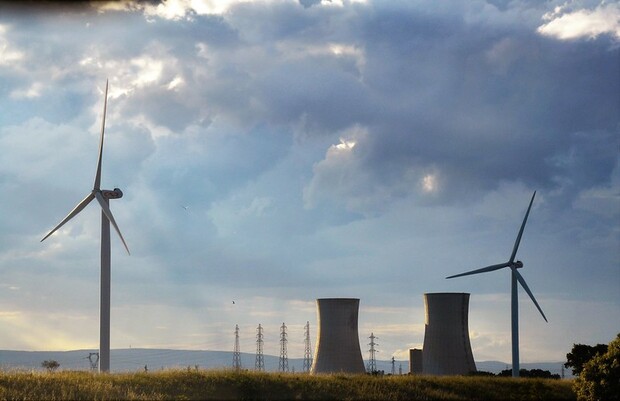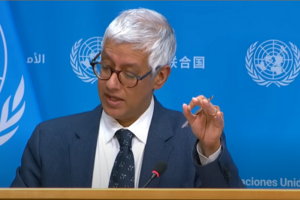What do we really think about energy independence?

This data analysis was originally posted on ActiVote.net (not rated).
In August 2023, AllSides and ActiVote collaborated on an Energy Independency Survey with 12 questions, each with 5 possible answers. The poll was processed using ActiVote’s standard polling methodology (details in appendix A). The average sample size was 804 per question, leading to an expected polling error of less than 4%. We invite you to participate in this survey if you have not already.
For each of the questions we have looked at the overall opinion of all survey takers as well as the split by party, especially focused on what Democrats and Republicans think to see whether there is consensus.
The most important conclusion from this survey is that there is overwhelming bipartisan support for nuclear energy: 3 in 4 Democrats and Republicans support expansion of nuclear energy.
There are a two other topics where Democrats and Republicans are somewhat aligned:
On most other topics, Democrats and Republicans are on opposite sides of an issue, but the overall opinion of the country may lean one way or the other. In summary:
In the next 12 sections we present the summary results per individual question.
The survey (answered by 567 people) asked: “Which of these statements best reflects your opinion on the approach to energy independence?” and provided 5 answers:

Half the country believes we should focus on both reducing our energy consumption and increasing our energy production. Of those who believe we should do more one than the other, many more (38%) believe we should focus on producing more, than those who believe we should consume less (12%).

Republicans are very clear on this issue: a majority of 63% believes we should focus on producing more, while virtually no Republican believes we should instead focus on consuming less. A majority of Democrats believe we should do both, while there are slightly more Democrats who believe we should focus on producing more (23%) than consuming less (20%). Independents are quite similar to Democrats, with a slightly bigger focus on producing more.
The survey (answered by 506 people) asked: “Which of these statements best reflects your opinion on Bureau of Land Management (BLM) land leases for fossil fuel extraction?” and provided 5 answers:

The country is split on whether we should increase (44%) or decrease (46%) the available land parcels for fossil fuel extraction, with only a small group (11%) believing that the current situation is “just right”.

This is a very partisan issue, with Republicans voting 79%-9% for increasing land leases, while Democrats are 70%-22% for decreasing. Independents are evenly split (44%-42%).
The survey (answered by 1112 people) asked: “Which of these statements best reflects your views on offshore drilling?” and provided 5 answers:

While just over a quarter (27%) of respondents believe offshore drilling should be completely phased out, the remaining three quarters are split on how to handle it: 24% want to allow it in low-risk areas, while almost half (43%) would like to keep polluters accountable. Only a very small group of 6% wants to go ahead without restrictions.

There is a significant partisan split on this topic: 66% of Democrats want to only allow it in low-risk areas, or phase it out completely, while 82% of Republicans believe that it should be allowed, either without restrictions, or as long as polluters are held accountable. Independents are about evenly split between these positions..
The survey (answered by 849 people) asked: “Which of the following statements best reflects your opinion on fracking?” and provided 5 possible answers:

A small majority of 54% believes that fracking should be reduced or banned, while just 33% believes it should be increased.

The partisan split on fracking is significant: 63% of Democrats want it completely banned, while 60% of Republicans want to increase fracking. Independents lean against fracking with 56% wanting it reduced and only 28% want it increased.
The survey (answered by 757 people) asked: “Which of the following statements best reflects your opinion about the coal industry?” and provided 5 possible answers:

The country is split on coal: 45% wish to make life more difficult for the coal industry, while 42% want to make things easier.
Democrats overwhelmingly (72%) wish to reduce or eliminate coal, while Republicans overwhelmingly (78%) wish to lend coal a helping hand. Independents lean more to the Democrats on this issue.
The survey (answered by 1034 people) asked: “Which of the following statements best reflects your opinion about nuclear energy?” and provided 5 possible answers:

There is overwhelming support for nuclear energy: over a quarter (28%) of Americans believe it should be scaled up as fast as possible and another 46% believe it should be promoted as a clean energy. Only 11% wish to phase it out.

Nuclear Energy is the rare topic where Democrats and Republicans are completely aligned: 73% of Democrats look favorable at Nuclear Energy, with only 18% wishing to phase it out. Among Republicans there is 78% support for increasing nuclear power, and very few wishing to get rid of it.
The survey (answered by 579 people) asked: “Which of these statements best reflects your opinion on Renewable Fuel Standard waivers?” and provided five possible answers:

Renewable Fuel Standards can count on majority support: 60% wish to keep the current system and/or strengthen adherence to the rules, while 41% wishes to weaken or repeal the system.

There is some partisan divide with Democrats split 66%-24% for strengthening the standards, while Republicans split 59%-25% in favor of weakening the standards. Independents lean slightly in favor of strengthening the rules: 50%-44%.
The survey (answered by 714 people) asked: “Which of the following statements best reflects your opinion on a carbon tax?” and provided 5 answers:

Half the country does not want to see a carbon tax at all, while about one quarter wishes to see it applied to everyone, but with the revenue from it redistributed. The remaining quarter splits between various selective forms of carbon taxes.

There is a significant partisan divide: virtually all Republicans (84%) reject a carbon tax for anyone, while only a quarter of Democrats do. Almost half of Democrats (45%) prefer to make it applicable to everyone (with revenue redistribution).
The survey (answered by 748 people) asked: “Which of these statements best reflects your opinion about energy subsidies?” and provided 5 answers:

A minority of 30% believes that we should have no energy subsidies at all. Of the 69% that support subsidies, more than half (39%) wish to focus on climate change, others on energy independence (18%) and the remainder on supporting new sources of energy (12%). Almost no one wishes to support struggling industries like coal.

Almost two-thirds (63%) of Democrats are in favor of energy subsidies that focus on climate change, while Republicans in majority (55%) wish to see no energy subsidies, but if any are provided, a quarter (27%) believes it should be focused on energy independence.
The survey (answered by 507 people) asked: “Which of the following statements best reflects your opinion on wind energy?” and provided 5 answers:

There is more support (50%) than opposition (33%) against wind energy, with the remaining group neither for nor against.

Democrats are very supportive of wind energy with two-thirds in favor of stimulating wind, with very few strongly against it. A small majority of Republicans are negative about wind energy.
The survey (answered by 1771 people) asked: “Which of the following statements best reflects your opinion on solar tax credits?” and provided 5 answers:
Solar Tax credits are highly popular with 71% supporting them to continue for at least some time. Almost one quarter of Americans believe they should never have existed in the first place.

The survey (answered by 506 people) asked: “Which of the following statements best reflects your opinion on who the US trades energy with?” and provided 5 answers:

A slim majority of 51% believes that we should aim for zero imports from outside North America (or zero imports at all). An additional one-third believes that while our dependency on fossil fuels are reduced our dependency on trading partners should also be reduced.

Republicans in large majority (77%) believe that aiming for zero imports from outside North America is important, while very few believe that reducing fossil fuels as such is a priority. About one-third of Democrats agree with the Republicans and a large minority (40%) believe that we should reduce our dependency in balance with reducing our dependence on fossil fuels.
Each of the participants was provided with optional background information on each of these policy topics before responding. We encourage you to review the survey in detail if you have questions on what each participant read.
ActiVote collects survey responses through the ActiVote app, both available on web and smartphone (the vast majority of participants in this survey used the web version).
The survey responses are weighted based on various characteristics to ensure the sample reflects the opinion of the American public at large. Feel free to review ActiVote’s polling methodology.
Within ActiVote surveys, respondents get immediate feedback after choosing an answer. Participants can change their answer after seeing such feedback, allowing them to reconsider their answer, but also possibly influencing their answer and creating a “bandwagon effect” by respondents selecting among the more popular responses.
ActiVote can interpret the results in three possible ways: we can only include the first answer given per question (thus, ignoring any subsequent changing of answers after seeing the feedback), we can always take the last answer (thus, using the changed answer), or eliminate all survey answers that have been changed (thus, only taking survey answers that were “first time right” in the eyes of the survey taker). For this survey there was on average less than 1% difference between using only first time right answers or all answers. We therefore decided to include all answers given.
The number of survey participants ranged from 506 and 1771 for the 12 survey questions with an average of 804, leading to an average expected error of less than 4%.

May 21st, 2024


May 16th, 2024

May 16th, 2024